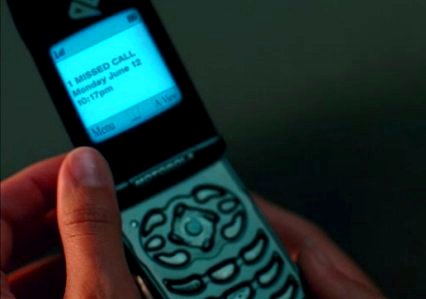The smallest signal
What is the smallest meaningful signal of communication?
In Egypt over the last few weeks we saw the protesters speak to the world thanks to a collaboration by Twitter, Google and SayNow, real-time transcriptions and translations by organizations like Meedan, and the uptime of certain phone networks, ISPs and social media like Facebook, all while the government was doing its best to block all local access.
But one of the most important modes of digital communication was given no press at all: drop-dialing. That is, phoning someone and immediately hanging up once you hear their phone ringing. Protesters were drop-dialing their relatives elsewhere as a pre-arranged message that simply meant “I am ok“. Unlike a text-message its content cannot incriminate you, it continues to function even when an actual call would be dropped due to an overloaded network, and it doesn’t cost anything. Noone was more worried for people protesting in Tahrir Square than their own close family and friends. For them, a simple drop-dialed call was a more frequent assurance of their loved one’s well-being than communication via social-networking sites.
It is a form of remote communication that has a lot of names: “drop-call”, “one-bell”, “buzz“. Czech even has a dedicated word for it, “prozvonit“. In Sierra Leone, the one place I’ve used it regularly, it is called “flashing“. I learned it the day I arrived when a colleague complained that a man at her office kept “flashing her all day”, and I was left shocked and confused. During the 2007 elections we had the same prearranged signal as in Egypt – a ‘flash’ to let our friends and families know we were ok – but fortunately neither the predicted violence nor phone network congestion came to near the feared levels.
Beyond this one narrow meaning there is an incredibly wide range of interpretations. Depending on the relationship between the two people, the drop-dial can be interpreted as: “call me” or “call me, because I have no credit” , “where are you?”, “how are you?”, “I am interested in you”, “I am thinking of you”, “I have arrived”, “I am home”, “I have your (item)” and more. The meaning of “call me” is a widely established practice. For example, if one of two friends is currently employed and the other is not, the employed person is generally expected to make the calls between the two. The others are more subtle. The signal itself is the same in all communications but its use and meaning is determined by the interlocutors’ relationship(s) within existing social networks and recent interactions within those networks. The minimum, of course, is that two people share each other’s phone numbers so that the name is later displayed. Beyond that, the exact meaning can be an extension of any type of conversion within your extended social network, easily crossing literacy and language barriers. But while it is a free method for remote communication, it seems to be only used by people who are also regularly in face-to-face contact. You could equally drop-dial someone across the country as in the next office block to say “I am thinking of you“, but in all the places that drop-dialing is common I have never seen it used this way. Perhaps the ambiguity is too great if it is not interpretable within the shared conversational history of both people – it relies on whatever our current strong network links happen to be.
I never fully mastered it in Sierra Leone. Girls I didn’t know very well would flash me and I would call back only for them so say “oh, you didn’t need to call, I was just saying hi”, or I would ignore the same flash and be later chided for being rude. Work colleagues would flash and I would call back (it usually meant they had no phone credit) only to be standing behind me with a puzzled expression “I was just telling you that I was arriving”. Clearly, I did not grasp this one type of technology-aided communication very well.
Drop-dialing may well be one of the most wide-spread free methods for remote communication that has ever existed, but as far as I can tell it has not been studied as part of our social network – it continually slips beneath our radar. Telecommunication companies are already allowing free “call me” messages between phones and the changing nature of data plans for cellphones will eradicate it completely before too long, especially with free communication through services like Facebook Zero becoming popular across Africa. The newer communications will be richer, but none will have so minimal and diverse a signal.
